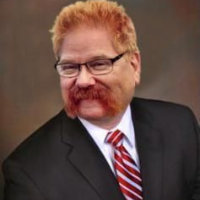Pleasant Ridge Criminal Lawyer, Michigan
Sponsored Law Firm
-
 x
x

Click For More Info:
-
The Law Office of Thomas Piotrowski
105 Pearl St Ypsilanti, MI 48197» view mapCriminal Defense Proudly Serving Washtenaw County
You need an attorney with criminal defense knowledge who will vigorously protect your rights and interests.
800-893-2781
Dean Elliott
✓ VERIFIEDCo-Counsel on the largest police misconduct verdict in Michigan history and the largest verdict in Michigan this year! On November 3, 2016, a jury in... (more)
Richard M. Halprin
✓ VERIFIEDAs an experienced attorney and district court magistrate, Richard Halprin has cultivated a network of relationships within the legal community, includ... (more)
Elliot D. Margolis
✓ VERIFIEDMr. Margolis has been rated “highly qualified” by judges and other attorneys, according to legal rating service Martindale-Hubbell. He is a member... (more)
Brent Jaffe
Upon passing the bar Attorney Brent Jaffe joined his father's firm to form Jaffe Law Group. "I was drawn to the practice of law because this professio... (more)
David J. Poulton
✓ VERIFIEDDavid Poulton is a practicing lawyer in the state of Michigan. He received his J.D from Michigan State University College of Law in 1998.
Gary R. Lazar
✓ VERIFIEDGary R. Lazar is a practicing lawyer in the state of Michigan handling criminal defense matters.
 Thomas Piotrowski Ypsilanti, MI
Thomas Piotrowski Ypsilanti, MI AboutThe Law Office of Thomas Piotrowski
AboutThe Law Office of Thomas Piotrowski Practice AreasExpertise
Practice AreasExpertise






